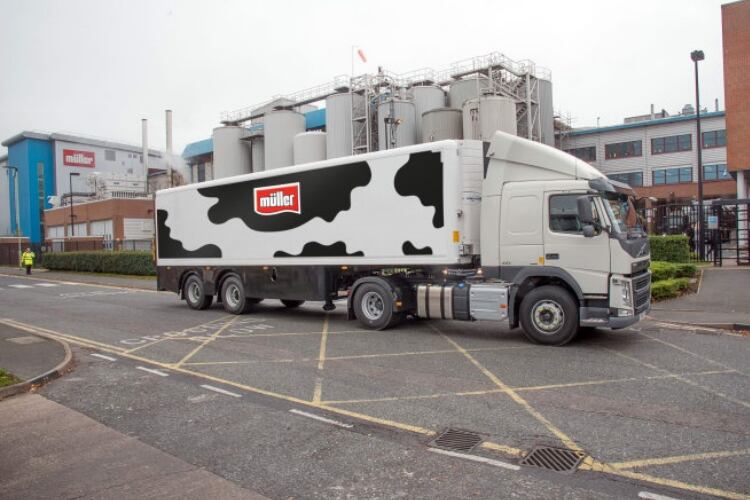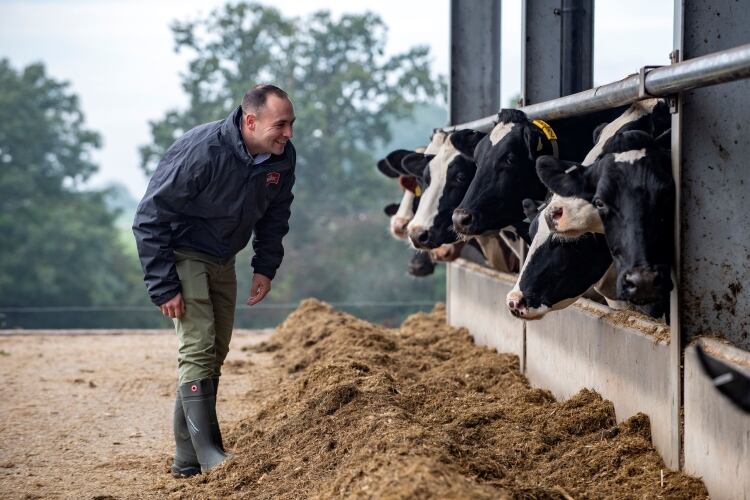Müller said it has identified three changes to help farmers reduce their environmental footprint: encouraging the replacement or reduction of soya feed in cattle diets, using more natural fertilizer, and increased use of genetics management.
The new target for more than 500 Müller Direct farmers is part of the dairy company’s Müller Advantage program from 2022, which helps farmers operate while also addressing issues for consumers and customers.
The company said 99.5% of Müller Direct dairy farmers signed up to Müller Advantage in 2021, which provides farmers with tools and support to help further improve areas like supply chain collaboration, herd health and reductions in environmental impact.
Participation by Müller Direct farmers, who supply conventional or organic milk directly to Müller, in Müller Advantage throughout 2022 will be incentivized, with an opportunity to earn a payment of 1 penny per liter (equivalent to £20,000/$26,420 for a 2m liter per annum producer).
The dairy company has updated its payment method, with the 1 penny per liter now paid quarterly rather than annually.
Jon Jenkins, chief executive officer at Müller Milk & Ingredients said, “We know that shoppers are thinking much more carefully about the choices they make, how and where it was made, the health benefits, the value it represents and how it is packaged. With 96% of adults in Britain buying milk, the end-to-end process, from farm to fridge, impacts a lot of lives, and we recognize our responsibility to do the right thing throughout the supply chain.
“While we already have a powerful story to tell in the dairy industry, to ensure future generations continue to benefit from its goodness, the whole supply chain must adapt and work harder than ever to meet the needs of the markets it serves.”


